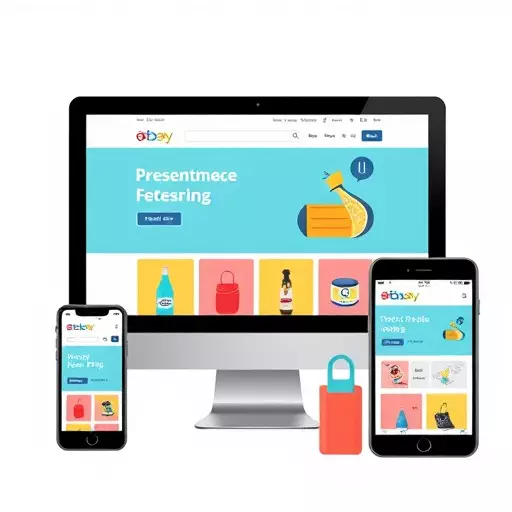In today's digital era, a successful e-commerce business in New Jersey relies on providing a seamless shopping experience across all devices. Responsive design, with a mobile-first approach, ensures your online store adapts to smaller screens while offering intuitive navigation. Custom e-commerce development allows for tailored features like advanced product filtering and search systems based on unique business needs. This strategy enhances user engagement, satisfaction, and conversion rates, giving New Jersey e-commerce platforms a competitive edge in the digital marketplace.
In today’s competitive e-commerce landscape, effective product filtering and search design are vital for driving user engagement and conversions. With a vast array of options, shoppers expect seamless navigation to find relevant products quickly. This article explores key strategies for optimizing these features, from understanding the user experience to implementing best practices. We delve into responsive e-commerce design tailored for New Jersey’s mobile market, the benefits of a mobile-first approach, and the power of custom development to create unique filtering experiences.
- Understanding the Importance of Product Filtering and Search in E-commerce
- Responsive E-commerce Design: Adapting to New Jersey's Mobile Market
- Mobile-First Approach: Optimizing for Smartphones and Tablets
- Custom E-commerce Development: Creating Unique Filtering and Search Experiences
- Enhancing User Engagement with Intuitive Product Navigation
- Best Practices for Implementing Effective Product Filtering and Search Features
Understanding the Importance of Product Filtering and Search in E-commerce

In today’s digital era, a seamless and intuitive shopping experience is paramount for e-commerce success, especially in competitive markets like New Jersey where businesses strive to stand out. Responsive e-commerce design is no longer a luxury but a necessity, ensuring that online stores adapt gracefully to various devices, from desktops to tablets to mobile phones. This adaptability is crucial for retaining customers and driving conversions, as mobile-first e-commerce design principles have shown significant impacts on user engagement and sales.
A robust product filtering and search system forms the backbone of any successful e-commerce platform. It empowers users to navigate through vast catalogs efficiently, locating products based on specific criteria such as price, brand, features, or customer reviews. Custom e-commerce development allows businesses to tailor these functionalities to their unique needs, resulting in an enhanced user experience that fosters loyalty and repeat business. By implementing efficient filtering and search capabilities, New Jersey-based e-commerce enterprises can create a competitive edge, ensuring customers find what they want quickly and seamlessly.
Responsive E-commerce Design: Adapting to New Jersey's Mobile Market

In today’s digital landscape, a robust and responsive e-commerce design is no longer an option but an imperative for businesses aiming to thrive in New Jersey’s competitive market. With a growing number of consumers shopping via mobile devices, adopting a mobile-first e-commerce design strategy is crucial. This approach ensures that the online store not only looks good on smaller screens but also functions seamlessly, providing an intuitive and enjoyable user experience. Custom e-commerce development plays a pivotal role in achieving this by allowing for tailored features, streamlined navigation, and optimized product filtering options specifically suited to mobile users.
By prioritizing responsive design, New Jersey’s e-commerce businesses can tap into the vast potential of their mobile market. It means offering fast loading times, easy product discovery, and simplified checkout processes, all essential elements that encourage higher conversion rates and customer satisfaction. This strategy not only benefits local retailers but also positions them to compete effectively on a global scale, where mobile commerce continues to dominate and shape consumer behavior.
Mobile-First Approach: Optimizing for Smartphones and Tablets

In today’s digital landscape, a robust and responsive e-commerce design is paramount to ensuring a seamless shopping experience for all users, especially with smartphones and tablets gaining prominence. Adopting a mobile-first approach in e-commerce design isn’t just a trend; it’s a necessity. This strategy prioritizes the smaller screens of mobile devices, optimizing the user interface and performance to cater to the growing number of online shoppers using these platforms.
Custom e-commerce development plays a crucial role here, allowing designers and developers to create dynamic and adaptable websites that seamlessly transition between different screen sizes without compromising functionality or aesthetics. By focusing on mobile-first e-commerce design in New Jersey or any region, businesses can attract and retain customers, ultimately boosting sales and fostering a loyal online community.
Custom E-commerce Development: Creating Unique Filtering and Search Experiences

In today’s digital era, a seamless and tailored shopping experience is paramount for any e-commerce venture to succeed. Custom E-commerce Development in New Jersey takes this to the next level by offering unique filtering and search functionalities that cater specifically to individual business needs. Mobile-first design principles are at the heart of this approach, ensuring that online stores are accessible and intuitive across all devices, from desktops to smartphones. This means shoppers can effortlessly navigate through products, applying filters tailored to their preferences, whether they’re looking for specific features, brands, or price ranges.
By investing in custom e-commerce development, businesses gain the flexibility to create highly personalized search experiences. These platforms can be engineered with advanced algorithms that understand user behavior and preferences, providing relevant product suggestions and refining search results over time. This level of customization not only enhances customer satisfaction but also drives conversions by offering a filtered, targeted view of products, setting e-commerce stores apart in the competitive online marketplace.
Enhancing User Engagement with Intuitive Product Navigation

In today’s digital era, enhancing user engagement on e-commerce platforms is paramount for success. One effective strategy lies in intuitive product navigation, especially with responsive e-commerce design in New Jersey gaining prominence. A mobile-first e-commerce design approach ensures that customers have a seamless browsing experience across all devices, from desktops to smartphones. This means meticulously crafting interfaces that adapt to different screen sizes, making it effortless for users to find products and filter options quickly.
Custom e-commerce development plays a pivotal role in achieving this. By tailoring the navigation to specific business needs, developers can implement advanced filtering features, such as faceted search or smart product suggestions. These tools empower users to narrow down their choices swiftly, whether they’re looking for specific colors, sizes, or brand names. Such intuitive navigation not only boosts user engagement but also drives conversions by simplifying the purchasing process.
Best Practices for Implementing Effective Product Filtering and Search Features

Implementing effective product filtering and search features is crucial for any e-commerce platform aiming to deliver an exceptional user experience, especially in the competitive New Jersey market. A well-designed system should adapt to various user needs, ensuring seamless navigation on both desktop and mobile devices. Adopt a mobile-first e-commerce design approach to prioritize the mobile shopping journey, as this is often the primary touchpoint for many customers. Responsive e-commerce design ensures your website adapts smoothly to different screen sizes, providing a consistent experience across all devices.
Custom e-commerce development allows businesses to tailor these features to their unique requirements. By leveraging advanced algorithms and intuitive interfaces, developers can create sophisticated filtering options, enabling users to find products swiftly. Implement smart search suggestions, facet filters for refining results, and visually appealing layout designs to boost engagement. These practices collectively contribute to a more efficient and enjoyable shopping experience, encouraging higher customer satisfaction and conversion rates.


